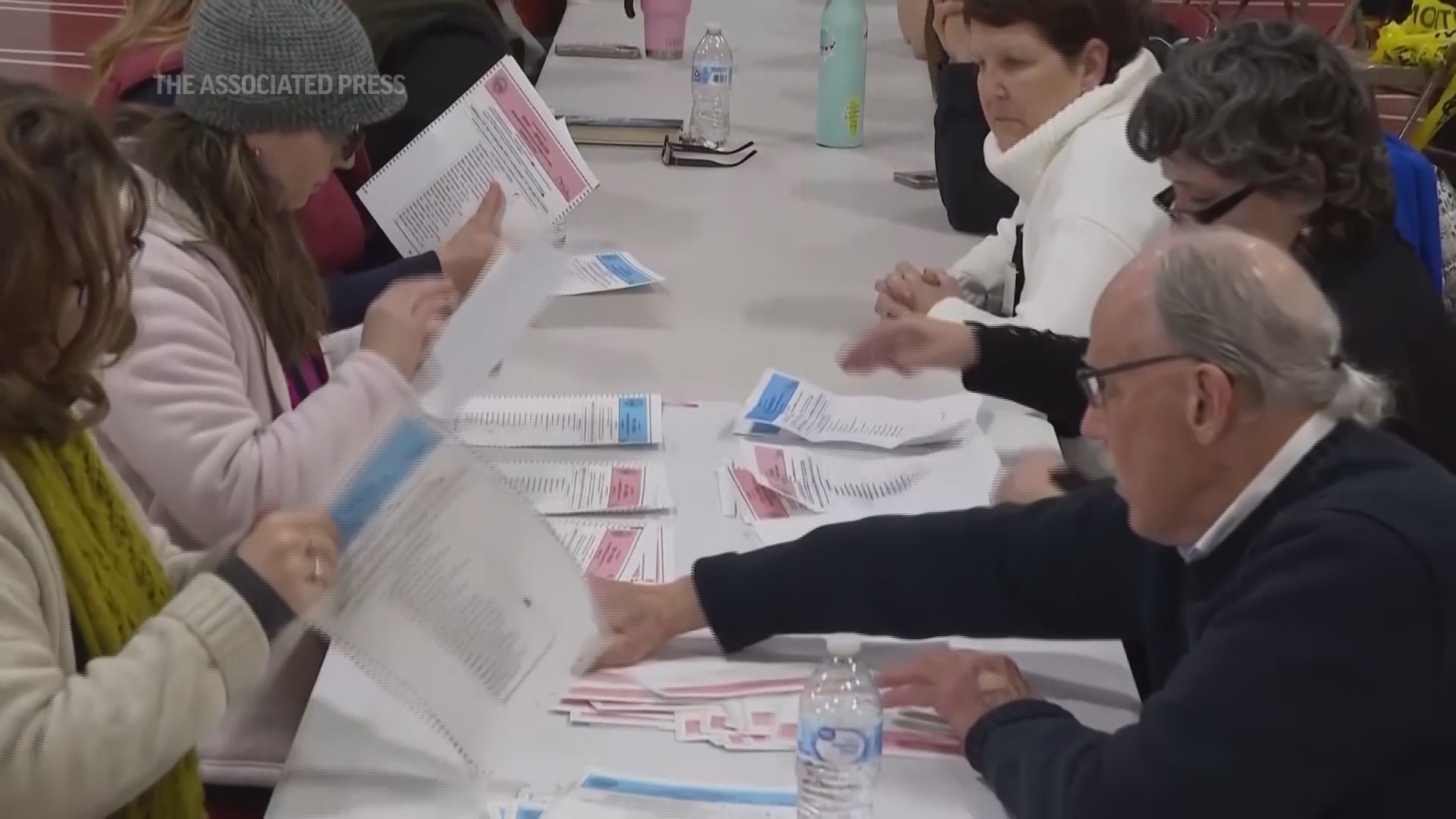WASHINGTON — President Joe Biden and his predecessor, Donald Trump, mostly swept the coast-to-coast contests happening in more than a dozen states on Super Tuesday. Former U.N. Ambassador Nikki Haley did score one surprise victory.
While Trump and Biden will have to wait until later this month to formally become their parties’ presumptive nominees, the Super Tuesday results all but cements a November rematch. It also puts more pressure on Trump's last major rival, Nikki Haley, to leave the Republican contest.
What states has Trump won?
During Super Tuesday, Trump won Texas, Alaska, Alabama, Colorado, Maine, Oklahoma, Virginia, North Carolina, Tennessee, Arkansas, Minnesota, Massachusetts and Utah.
Trump has been the frontrunner for the Republican nomination since entering the race, as he attempts to win back the White House after his 2020 loss to current President Joe Biden.
What state did Nikki Haley win?
Haley scored a surprise victory on Super Tuesday, upsetting Donald Trump to win Vermont.
The only other primary Trump hasn't won in 2024 was the Washington, D.C. primary. The famously Democratic city's Republicans voted for Haley, which gave her a first win of the primary season.
What states did Biden win?
During Super Tuesday, Biden won California, Texas, Alabama, Colorado, Maine, Minnesota, Oklahoma, Virginia, North Carolina, Tennessee, Arkansas, Massachusetts, Utah, Vermont and Iowa.
The president did lose the Democratic caucus in American Samoa, a tiny U.S. territory in the South Pacific Ocean. Biden was defeated by previously unknown candidate Jason Palmer, 51 votes to 40.
For the Democrats, there was never a major choice for the party's standard-bearer. Traditionally, when a party has a one-term president in the White House, that person faces little party resistance when seeking re-election. And 2024 has proved no difference.
Although he still faces Rep. Dean Phillips and Marianne Williamson — who unsuspended her campaign shortly before Super Tuesday — Biden has the full support of party leaders and Democratic donors as he looks toward the general election.
What happens next after Super Tuesday?
Former President Donald Trump, who had won nearly every presidential contest in which he’s appeared on the ballot, needs 1,215 delegates to become the presumptive nominee.
The earliest Trump can hit that number is March 12. The exact number of delegates available on a date can also change as state parties finalize their plans.
On March 12, primaries will be held in Georgia, Mississippi and Washington, along with a Republican caucus in Hawaii.
Former UN Ambassador Nikki Haley, the last major candidate on the Republican side to challenge Trump, has only a handful of delegates, and Super Tuesday didn't change much for her standings in the race.
Republican delegate rules vary by state, but their system generally makes it easier for frontrunners to quickly rack up large numbers of delegates because many states — including Super Tuesday’s biggest prize, California — award all their delegates to candidates who win a majority of the vote.
When can President Joe Biden officially clinch the Democratic nomination?
On the Democratic side, President Joe Biden's magic number currently sits at 1,968, though that could shift slightly depending on how the party decides to handle New Hampshire, which broke party rules by holding its party primary in January. The earliest Biden can hit that figure is March 19 - which features presidential primaries in Arizona, Florida, Illinois, Kansas and Ohio.
Democrats award delegates proportionally everywhere, making it easier for trailing candidates to pick up delegates, at least in theory. Biden’s only continuous challenger, Rep. Dean Phillips, hasn’t been able to take advantage, but these rules open the door for ballot options like “uncommitted” or “no preference” to receive delegates, should they qualify by meeting a vote threshold of 15%, either statewide or in a congressional district.

